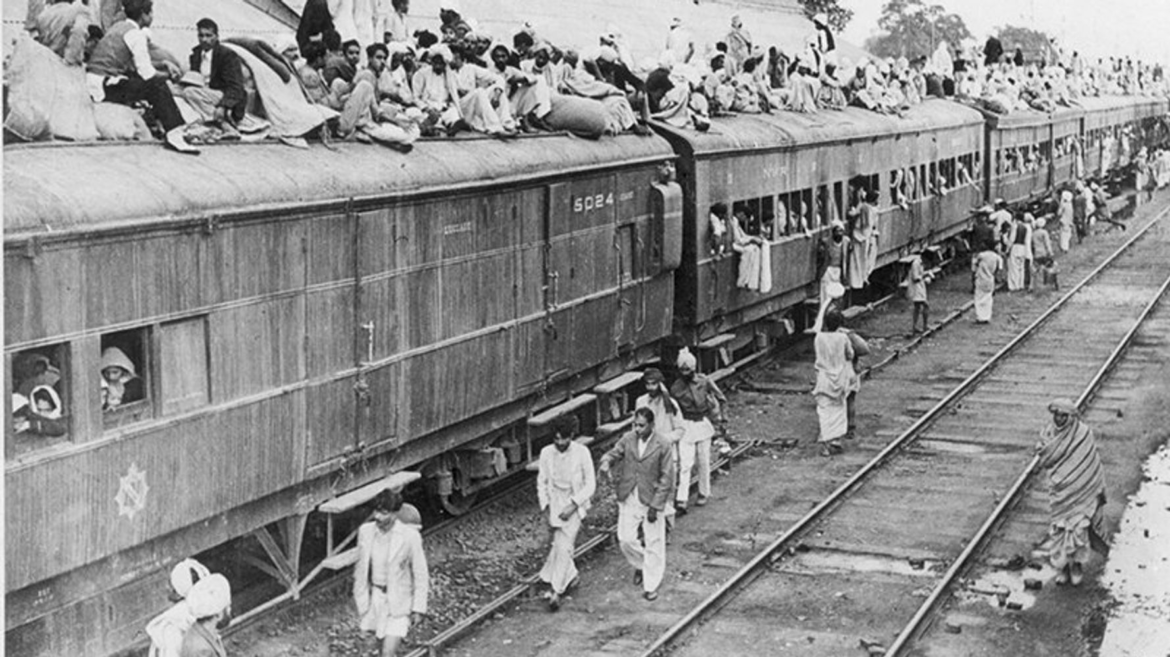AI Generated Summary
- As it came to a halt on the platform, there were no shrieks of joy, no laughter, and chatter as relatives greeted each other.
- As a child, waiting for the train at a station, was always more exciting than the actual journey.
- He had hidden all of them in the washroom of the bogie and locked it securely from the outside.
“Who were these people who came and killed? It was us. We did it to each other. These were deep rifts beneath the surface, deep divides that were easily incite able.”
I still remember the buzz, the constant hum of activity at a railway station. As a child, waiting for the train at a station, was always more exciting than the actual journey. I used to love observing things around me; vendors screaming their heads off trying to sell their ‘chai’ and ‘samosas’, bookstalls that were like treasure chests, and people, always on the move. Comings and goings. The sound of the train’s horn. The squeal of brakes. The chatter of passengers. It was another world.
However, the railway station we’re going to talk about today was just the opposite. August 1947, Ferozepur, Punjab (India). The platform was abuzz. But not with excitement or daily activities. There were hushed whispers. The wringing of hands. Constant glances at clocks. No vendors walked the platforms selling ‘chai’ and ‘pakoras’. No children played around. The bookstalls were barred shut. Men in uniforms were stationed at various spots. There was a profound smell of fear and anxiety. The train from Lahore was expected at any moment.
The train came. It was a mail train. As it came to a halt on the platform, there were no shrieks of joy, no laughter, and chatter as relatives greeted each other. There was silence. Complete and utter silence. When the doors of the carriages were opened people clambered out. Dead people. Corpses. Dismembered arms and legs, severed heads. Blood dripping from beneath the bogies.
Those waiting for their loved ones met with mutilated limbs and bodies of their relatives. It was a macabre scene. Then, a handful of passengers disembarked. A man, a woman, and two kids. They were horrified by the sight that awaited them. They were the only ones left alive on the train! You must be wondering, how? Well, when the Muslim Station Master saw the kids, he knew the fate that would befall them if Muslim mobs saw them. Hence, he had hidden all of them in the washroom of the bogie and locked it securely from the outside.
As the train pulled into each station where it was scheduled to stop (in Pakistan), men with flowing beards, wielding ‘lathis’ and knives, barged in, demanding “Hai koi Sikh da bacha?” At every station, the station master calmly sincerely replied, “No one here but my family” and even opened the compartment windows to let them peep in. Thus, 4 lives out of some 700-800 were saved.
September 24, 1947, Kamoke, Gujranwala District (now Pakistan). A convoy of trucks loaded with non-Muslims from Khewra was unboarded at Pind Dadan Khan from where they were to get on the last train to India. Lajwanti was accompanied by her 1½-year-old son and husband, her uncle Ganda Mal, his wife, and their little daughter. The train was accompanied by a guard of 15 soldiers of Pakistan Army. Passengers were crammed into train cars like cattle. No food. No water. As it reached Kamoke, the police ordered everyone to get off and searched the train for two hours. All men were disarmed and assured that their weapons would be returned when the journey resumed. As the engine whistled, huge Muslim crowds, armed with daggers, rifles, knives, and sticks, entered the train from all entrances chanting “ya Ali”.
As soon as they entered, men were killed and women segregated. Police sided with the assailants and shot anyone who tried to get off the train. The women folk were then made to disembark and all their jewelry and valuables were looted. Lajwanti’s infant son was snatched away from her cruelly as she was given to Abdul Ghani, a ‘tonga driver’. The other younger women suffered a similar fate as they were distributed like ‘goods’. Older women suffered a better fate and were butchered. As were most of the children. Murdered in cold blood.
Out of 5000 passengers, 500-600 were women. And while almost all 4400-4500 were killed, the women were taken by the mob, like prized trophies, to be used, abused, and insulted.
Similar incidents were reported across borders. All of them are catastrophic and heartbreaking. They killed mindlessly. As if it was the most natural thing to do in the world. These ‘ghost trains’, as they rolled to a stop at their destinations, filled the onlookers with horror and dread. The ‘gifts’ that were exchanged defied all cohesion. Bogies were swamped with blood, like flooded water. Eyes were gauged out of sockets and piled up in a corner. Upper and lower torsos were stacked in separate piles. Hands and feet had different heaps. As did women’s breasts, ruthlessly cut off from their dead bodies.
It was heinous. Unimaginable. Even as I write, my hand shivers and my eyes fill up with tears. I feel ashamed. Where did humanity vanish? It couldn’t have just gone off in smoke. How could brothers rape sisters? How could fathers kill sons? Two ‘Nations’ had been carved out. Wasn’t that the call? Why the massacres then? Who can answer these questions?




